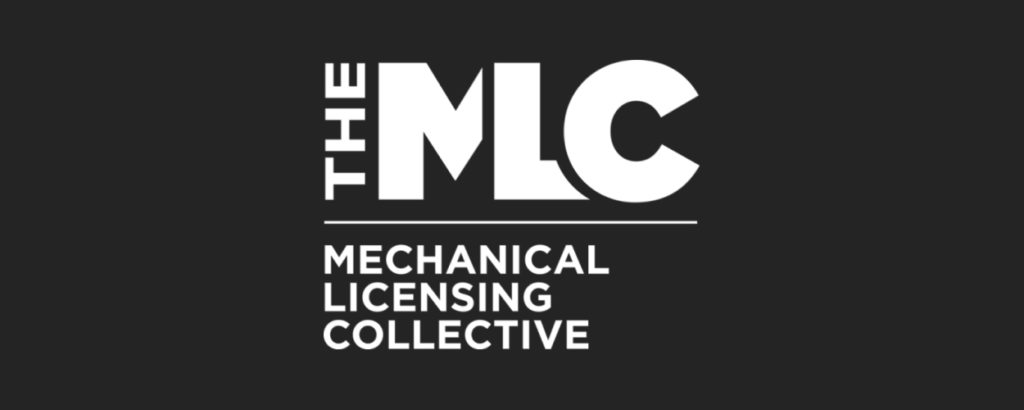This website uses cookies so that we can provide you with the best user experience possible. Cookie information is stored in your browser and performs functions such as recognising you when you return to our website and helping our team to understand which sections of the website you find most interesting and useful.
Business News Deals Digital Labels & Publishers Top Stories
Streaming services agree $62 million budget with America’s new mechanical rights society
By Chris Cooke | Published on Friday 15 November 2019

The new mechanical rights collecting society in the US has agreed its initial budget with the streaming services that are paying for it. Reps for both sides called the agreement “a landmark achievement for every facet of the music industry”. Now begins the challenge of getting the new society up and running and seeing if it means songwriters actually get paid.
The Mechanical Licensing Collective was set up by last year’s Music Modernization Act and will provide streaming services with licences covering the so called mechanical rights in the songs that they stream. No such society has previously existed in the US, meaning that streaming services need to identify the owner of the copyright in each song they exploit. There is a compulsory licence for mechanicals in America, so royalty rates are set in law, but services still need to send paperwork to each rights owner to enact the compulsory licence.
Streaming services – like the record labels who license the mechanical rights for CDs and downloads – usually outsource the admin of this process to companies like the Harry Fox Agency. But with millions of tracks on the streaming platforms, and with the services not knowing what songs are contained within those tracks, that process has proven problematic, with plenty of songs going unlicensed. And that in turn led to a flurry of lawsuits seeking millions and then billions in damages.
In most other countries streaming services outsource the problem of working out what songs are being streamed and who needs to be paid to a mechanical rights collecting society. With Anglo-American repertoire they may also have direct deals in place with certain publishers, but the local society basically provides a mop-up licence, so that the service has someone to pay for all the songs not covered by one of those direct deals.
The MMA basically seeks to replicate that system in the US through the creation of this new collecting society. Although, while that society will be run by and for the benefit of the songwriting and music publishing communities, it will be paid for by the streaming firms. They’ve agreed to put up the money because it saves them the major hassle of identifying individual songs and rights owners, and removes the risk of further multi-million dollar lawsuits over unlicensed works.
With the MMA passed and an organisation selected to set up the new society, the next tricky task was agreeing a budget – ie how much would the streaming services have to pay for the launch and running of this new rights organisation.
The music publishers and streaming firms worked very closely together on the drafting and passing of the MMA. Though since then the relationship between the two groups has soured somewhat after various streaming firms appealed a ruling by the Copyright Royalty Board to increase the royalties due to be paid under the compulsory licence. And the MLC’s funding demands had the potential to further sour that relationship.
Howeve, an agreement has been reached. The MLC said it needed $37.25 million for set up costs and a further $29 million to cover year one overheads. The streaming services have negotiated those costs down a little. They will provide $33.5 million for launch and $28.5 million for year one. Those costs will be split between the various streaming platforms, who will contribute based on size.
The budget was agreed between the MLC and an organisation called the Digital Licensing Coordinator, which represents the streaming firms.
The former’s Chairman Alisa Coleman and the latter’s overseer James Duffett-Smit said in a joint statement: “Today’s agreement between the MLC and the DLC represents a landmark achievement for every facet of the music industry. As a result of this accord, the central feature of the Music Modernization Act will be able to commence operations with the resources necessary to help ensure its success”.
As well as their agreement, the MLC and DLC have also announced the creation of a new budgeting committee that will routinely evaluate the new society’s running costs. The hope is that agreements can be secured on an ongoing basis without having to go to the aforementioned Copyright Royalty Board for mediation.
The agreement was welcomed by trade groups representing both the music publishers and the streaming services.
The boss of the National Music Publishers Association, David Israelite, said the deal was “an important step forward for our industry”. He added: “We are pleased the digital services met the budgetary requirements to ensure the success of the MLC’s mission. The Music Modernization Act contained ambitious requirements and this agreement will give all parties a good head start on achieving its goals”.
Garrett Levin at the Digital Media Association went even further, declaring the deal was “a watershed moment in music licensing and a win for the entire music community”. The agreement, he added, “highlights the unwavering commitment of the streaming companies to establishing a fully functional MLC that can fulfil its mission”.
With the finance agreed, the MLC now needs to build a system capable of identifying what songs are in what recordings and who owns the copyright in those songs. And then pay those people. Plenty of long established collecting societies around the world have struggled with that task. Though they’d probably argue that if they also had $62 million of streaming firm cash to spend they’d do a much better job of it.





